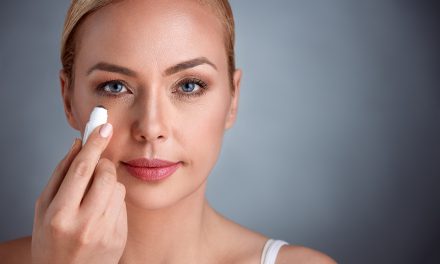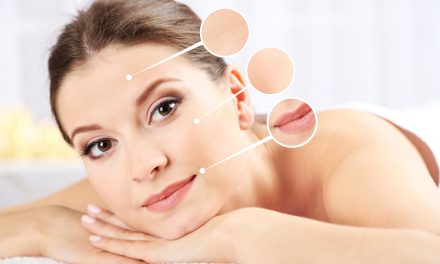Maintaining youthful, healthy skin depends largely on a few simple but effective habits. Staying well hydrated, protecting the skin from sun damage, and preventing wrinkles are key steps anyone can take to keep their skin looking vibrant and smooth for longer. These actions help support the skin’s natural functions and reduce early signs of aging.
Drinking enough water keeps skin moist and healthy, while daily use of broad-spectrum sunscreen guards against harmful UV rays that cause wrinkles and spots. Effective wrinkle prevention involves gentle care, avoiding habits that accelerate aging, and using products that support skin repair.
Understanding how skin changes over time and adapting routines to those changes can make a big difference. A consistent approach to hydration, sun safety, and wrinkle control forms the foundation for long-lasting skin health.
Key Takeaways
- Hydration is essential for maintaining healthy, glowing skin.
- Sun protection prevents damage that leads to wrinkles and age spots.
- Regular care and prevention support youthful skin over time.
Understanding Skin Aging
Skin aging is a natural process influenced by many elements. Some factors speed up the breakdown of skin structure, while others affect its ability to repair and stay resilient. Both internal and external forces shape how skin changes over time.
Key Factors That Affect Skin Youthfulness
The main factors that impact skin youthfulness include moisture levels, sun exposure, and collagen production.
- Hydration: Well-hydrated skin maintains elasticity and a smooth texture. Dryness causes roughness and fine lines.
- Sun Protection: Ultraviolet (UV) rays from the sun accelerate skin damage. They cause wrinkles, age spots, and increase skin cancer risk.
- Collagen and Elastin: These proteins support skin firmness. As their levels decrease with age, skin becomes thinner and more prone to sagging.
Other factors like smoking and stress also harm skin by reducing blood flow and breaking down collagen faster.
How the Skin Ages Over Time
Skin ages through two main processes: intrinsic and extrinsic aging.
- Intrinsic aging is the natural loss of collagen and fat, plus slower cell turnover. This leads to thinner, drier skin with fine lines.
- Extrinsic aging results from external influences like sun exposure, pollution, and lifestyle choices.
Over time, the skin’s ability to repair damage slows. Wrinkles deepen as elastin fibers degrade, and age spots may form from repeated UV exposure. Moisture retention also decreases, making skin appear dull.
Genetic and Environmental Influences
Genetics plays a big role in how quickly or slowly skin shows age. Some people naturally produce more collagen or have better skin barrier function.
Environmental factors, however, often have a larger impact:
- Sunlight: Continuous UV rays cause the most damage.
- Smoking: Reduces oxygen supply to skin cells.
- Pollution: Triggers inflammation and oxidative stress.
Maintaining healthy skin requires managing these influences daily. Protective measures like wearing sunscreen and avoiding harsh environments help preserve youthful skin longer.
For more details on caring for aging skin, see this guide on skin care for aging skin.
There’s a product that supports maintaining youthful, healthy skin by focusing on hydration, sun protection, and wrinkle prevention. It’s designed to help you achieve lasting radiance with a simple, effective routine. Let me know if you’d like more information! Learn more on our YouTube Channel Here: Valleant Health, or see us on Facebook Here: https://www.facebook.com/valleant
The Power of Hydration
Hydration is key to keeping skin healthy, plump, and resilient. It supports the skin’s natural barrier and helps prevent dryness and damage. Knowing how hydration affects skin and the best ways to maintain it can improve the skin’s appearance and comfort.
Hydration’s Role in Skin Health
Water makes up a large part of the skin’s structure. It keeps skin cells full and flexible, which reduces the look of fine lines and rough texture. When skin is well-hydrated, it holds onto moisture better, preventing dryness that can lead to irritation or cracking.
Hydrated skin also has a stronger barrier that protects against pollutants and bacteria. Without enough moisture, skin becomes dull and more prone to damage. Drinking enough water daily supports hydration from within, helping maintain clear, vibrant skin throughout the day.
Best Practices for Maintaining Skin Moisture
To keep skin hydrated, regular water intake is essential. Experts recommend about 8 cups (2 liters) of water daily, but needs vary based on activity and climate. Besides drinking water, avoiding long hot showers and harsh soaps helps preserve the skin’s moisture.
Using a humidifier in dry environments can add moisture to the air and prevent skin from drying out. Also, applying moisturizers right after washing locks in the water on the skin surface. Consistency is key for lasting hydration and healthy skin.
Choosing the Right Hydrating Products
Hydrating creams and serums often contain ingredients that draw moisture into the skin or create a barrier to hold it in. Look for hyaluronic acid, which attracts water and helps skin stay plump and elastic.
Other helpful ingredients include glycerin, which boosts moisture, and ceramides, which support the skin’s protective barrier. Products should suit skin type; for example, lighter gels work well for oily skin, while richer creams benefit dry skin. Avoid products with heavy fragrances or alcohol that can dry skin out.
For advice on keeping skin hydrated with the right products, see The Role of Hydration in Skincare.
Comprehensive Sun Protection
Protecting skin from the sun is essential to keep it healthy and youthful. This involves understanding how UV rays affect skin, choosing the right sunscreen, and adopting daily habits that guard against sun damage.
How UV Rays Accelerate Aging
UV rays from the sun cause damage beneath the skin’s surface. They break down collagen and elastin, the fibers that keep skin firm and smooth. This leads to wrinkles, sagging, and fine lines over time.
There are two types of UV rays: UVA and UVB. UVA penetrates deeply and contributes more to premature aging, while UVB causes sunburn and can also harm the skin. Both increase the risk of skin cancer.
Frequent sun exposure without protection damages skin cells and speeds up aging. Avoiding sunburn and using protection reduces the chance of early wrinkles and skin spots.
Selecting Effective Sunscreens
Choosing a broad-spectrum sunscreen is key because it protects against both UVA and UVB rays. Look for products with an SPF of 30 or higher for daily use.
Sunscreens come in different forms: lotions, sprays, gels, and sticks. Lotions are good for dry skin, while gels suit oily or hairy areas. Spray sunscreens are easy to apply but need careful coverage.
Ingredients like zinc oxide or titanium dioxide provide physical barriers that reflect UV rays. Chemical ingredients absorb UV light.
Reapply sunscreen every two hours, or after swimming or sweating, to maintain protection.
Daily Sun Protection Habits
Wearing sunscreen should be part of a daily routine, even on cloudy days. Clouds do not block UVA rays, which cause skin damage.
Additional habits include wearing hats with wide brims and sunglasses that block UV rays. Clothing with built-in sun protection can also help during long outdoor activities.
Seek shade between 10 a.m. and 4 p.m., when the sun is strongest. Using umbrellas or finding shaded spots lowers skin exposure.
Applying sun protection regularly works best together with other skin care habits like hydration to keep skin resilient and healthy. For more details, visit WNY Dermatology.
There’s a product that supports maintaining youthful, healthy skin by focusing on hydration, sun protection, and wrinkle prevention. It’s designed to help you achieve lasting radiance with a simple, effective routine. Let me know if you’d like more information! Learn more on our YouTube Channel Here: Valleant Health, or see us on Facebook Here: https://www.facebook.com/valleant
Wrinkle Prevention Techniques
Maintaining smooth skin means taking specific daily actions and choosing effective skincare products. Small changes in routine and the right ingredients can slow down the formation of wrinkles and keep skin looking healthier.
Lifestyle Adjustments to Minimize Wrinkles
Sun protection is the most important step to prevent wrinkles. Wearing sunscreen daily with at least SPF 30 shields skin from UV rays, which break down collagen and cause early aging. Using hats and seeking shade also helps reduce sun damage.
Hydration plays a key role. Drinking at least eight glasses of water daily keeps skin cells plump and elastic. Using a humidifier indoors can also maintain skin moisture, especially in dry environments.
Avoiding smoking and limiting alcohol intake benefits the skin by preventing dryness and loss of elasticity. A balanced diet rich in vitamins C and E supports skin repair and resilience.
Proven Skincare Ingredients for Wrinkle Reduction
Retinoids, derived from vitamin A, are well-studied for reducing fine lines. They work by increasing cell turnover and boosting collagen production. Over-the-counter options can improve skin texture if used regularly.
Moisturizers with hyaluronic acid help trap water in the skin, making wrinkles less noticeable. Using gentle exfoliants removes dead cells, allowing better absorption of products.
Antioxidant-rich creams that contain vitamin C protect skin from environmental damage. Consistent use of these ingredients supports smoother, firmer skin and slows wrinkle formation.
For more details on hydration’s role, see hydration and wrinkle prevention. For sun protection advice, refer to protecting yourself from the sun.
Daily Skincare Routines for Youthful Skin
Maintaining youthful skin relies on regular care that cleanses, protects, and nourishes. Applying the right products at the right times helps keep skin hydrated, prevents damage from the sun, and reduces wrinkles. A simple but consistent routine is key to seeing long-term benefits.
Morning and Evening Skincare Steps
In the morning, cleansing removes overnight oils and prepares the skin. Applying a moisturizer with hydrating ingredients keeps skin soft and smooth. Most importantly, using a broad-spectrum sunscreen with at least SPF 30 protects against UV damage that speeds aging.
In the evening, cleansing is essential to remove dirt, makeup, and pollutants. Following this, applying treatments like eye cream with peptides can support collagen and improve skin texture. Night moisturizers or sleep masks with hydrating elements help repair the skin barrier while sleeping. Regular cleansing also encourages healthy skin cell turnover.
Importance of Consistency
Consistency in skincare routines is crucial to maintain results. Daily cleansing, moisturizing, and sun protection reinforce the skin’s barrier and combat early signs of aging. Skipping steps weakens the skin’s defense against damage and reduces the benefits of active ingredients.
It takes weeks or months to visibly improve skin texture and reduce wrinkles. Committing to a routine every morning and night ensures gradual, steady improvement. Avoiding harsh soaps and scrubs also supports skin health by protecting the microbiome and preventing dryness.
There’s a product that supports maintaining youthful, healthy skin by focusing on hydration, sun protection, and wrinkle prevention. It’s designed to help you achieve lasting radiance with a simple, effective routine. Let me know if you’d like more information! Learn more on our YouTube Channel Here: Valleant Health, or see us on Facebook Here: https://www.facebook.com/valleant
Nutrition and Lifestyle Choices
Healthy skin depends a lot on what a person eats and how they take care of their body. Proper nutrition and good habits like sleep and stress management help keep skin strong and vibrant.
Foods That Promote Skin Vitality
Certain foods provide nutrients that support skin health by reducing inflammation and boosting cell repair. Omega-3 fatty acids, found in salmon, sardines, and flaxseeds, help keep skin hydrated and reduce redness.
Vitamins A, C, and E act as antioxidants that protect skin from damage caused by free radicals. Foods rich in these vitamins include carrots, citrus fruits, and nuts. Drinking plenty of water also helps maintain skin moisture and flush out toxins.
| Nutrient | Food Sources | Benefit to Skin |
|---|---|---|
| Omega-3 | Salmon, sardines, flaxseed | Reduces inflammation, hydrates |
| Vitamin A | Carrots, sweet potatoes | Supports cell repair |
| Vitamin C | Oranges, strawberries | Boosts collagen, fights damage |
| Vitamin E | Nuts, seeds | Protects against aging |
Impact of Sleep and Stress on Skin
Sleep is key for skin repair. When people sleep well, their bodies produce more collagen, which helps keep skin firm. Poor sleep can lead to dull skin and more wrinkles.
Stress increases the hormone cortisol, which can cause skin inflammation and breakouts. Managing stress through activities like meditation or light exercise helps reduce these effects. Consistent sleep and stress control improve the skin’s overall appearance and slow signs of aging.
Advanced Strategies for Healthy Skin
Maintaining youthful skin can go beyond basic care. There are specialized methods that target skin health more deeply. These methods often involve expert guidance and new technologies designed to support the skin’s natural function.
Professional Treatments and Procedures
Professional skin treatments can offer precise ways to improve skin texture and reduce wrinkles. Common options include chemical peels, microdermabrasion, and laser therapy. These help remove damaged outer layers and stimulate collagen production.
Injectables like Botox and fillers are also popular. Botox relaxes muscles that cause wrinkles, while fillers restore volume under the skin. Both require a trained professional to ensure safe and natural-looking results.
Regular visits to a dermatologist or licensed skincare expert can tailor these treatments to specific skin concerns. These procedures often complement daily routines, giving a more significant effect on skin tone and firmness.
Emerging Skincare Technologies
New technologies focus on enhancing skin renewal and protection. Devices using light therapy, like LED treatment, help reduce inflammation and promote healing. Radiofrequency and ultrasound treatments stimulate deeper collagen layers to improve elasticity.
Some advanced products combine technology with ingredients, like time-released antioxidants and peptides, for gradual skin repair. These often work best when included in a long-term skin care plan.
Using such technologies requires care and consistency. Consulting with a skin care professional ensures the right approach for different skin types and goals. These tools broaden the options available beyond traditional creams and serums.
Adapting to Changing Skin Needs
Skin changes naturally over time. These changes affect how skin should be cared for, including the types of products and routines used. Staying aware of these shifts is key to keeping skin healthy and youthful.
Adjusting Routines as You Age
Younger skin often needs lighter, oil-controlling products. As skin ages, it tends to become drier and thinner. This means switching to more hydrating and nourishing skincare, such as lotions with ceramides or hyaluronic acid.
Using sunscreen remains crucial at every age to prevent damage and wrinkles. However, older skin might benefit from added antioxidants and gentle exfoliation to boost renewal.
A good way to adjust a routine is to:
- Use richer moisturizers after age 40
- Incorporate products that support collagen production
- Avoid harsh cleansers that strip natural oils
These changes help reduce dryness and maintain firmness.
Monitoring Skin Health Over Time
Regular checks of the skin’s condition help detect issues early. People should observe for changes like new moles, uneven tone, or persistent dryness.
Visiting a dermatologist annually is recommended, especially for those spending a lot of time outdoors. Medical professionals can spot early signs of skin conditions and advise on proper care.
Keeping a simple skin journal with notes on products and reactions can be helpful. This record assists in identifying what works best as skin needs evolve.
Being proactive with skin checks and adjustments ensures a healthy, youthful look over the years. For more on adapting your skincare, see skin rejuvenation advice for different age groups.
Frequently Asked Questions
Maintaining youthful, healthy skin requires specific daily habits, protection from sun damage, and targeted care as skin changes with age. Proper hydration and a simple, consistent routine play key roles in keeping skin vibrant and youthful over time.
What are the best daily practices to reduce the appearance of wrinkles?
Using a broad-spectrum sunscreen with SPF 30 or higher every day helps prevent new wrinkles caused by sun damage. Avoiding smoking also slows skin aging and improves healing.
Applying moisturizers regularly keeps skin hydrated, which can reduce the look of fine lines. Gentle cleansing and avoiding harsh scrubs protect the skin’s barrier and prevent irritation.
How can one ensure adequate skin hydration to promote a youthful complexion?
Drinking at least eight glasses of water daily supports skin hydration from the inside. Eating water-rich foods like cucumbers, oranges, and strawberries also helps keep skin plump.
Using a daily moisturizer tailored to skin type seals in moisture. Incorporating hyaluronic acid or glycerin products can attract and maintain skin hydration.
What are effective sun protection strategies to maintain healthy, young-looking skin?
Daily use of broad-spectrum sunscreen shields against UVA and UVB rays and lowers the risk of wrinkles and skin cancer. Covering exposed skin with hats and clothing adds another layer of defense.
Seeking shade between 10 a.m. and 4 p.m., when the sun is strongest, reduces direct exposure. Reapplying sunscreen every two hours, or after swimming or sweating, is important for lasting protection.
At ages 30 and 40, what specific skin care adjustments should be made for preserving youthful skin?
In the 30s, introducing antioxidants like vitamin C helps combat free radicals and boosts collagen. Adding gentle exfoliation improves skin texture and allows better absorption of products.
In the 40s, using richer moisturizers and products with retinoids supports cell turnover and reduces wrinkles. It’s important to maintain strict sun protection and hydration to counter signs of aging.
What home remedies contribute to a younger-looking face?
Applying aloe vera or green tea extracts can soothe skin and reduce inflammation. Using honey as a mask offers moisturizing and mild antibacterial effects.
Cold compresses or cucumber slices may reduce puffiness and refresh tired skin. These simple remedies support skin health but should complement a regular skincare routine.
Can you outline a basic skin care routine to follow for maintaining skin’s health and youthfulness?
Start with gentle cleansing morning and evening to remove dirt and oil without stripping skin. Follow with a toner if desired, then apply an antioxidant serum to protect against environmental damage.
Use a moisturizer suited to skin type and finish with broad-spectrum sunscreen during the day. At night, consider applying a retinoid or nourishing cream to support repair while sleeping.
There’s a product that supports maintaining youthful, healthy skin by focusing on hydration, sun protection, and wrinkle prevention. It’s designed to help you achieve lasting radiance with a simple, effective routine. Let me know if you’d like more information! Learn more on our YouTube Channel Here: Valleant Health, or see us on Facebook Here: https://www.facebook.com/valleant




















